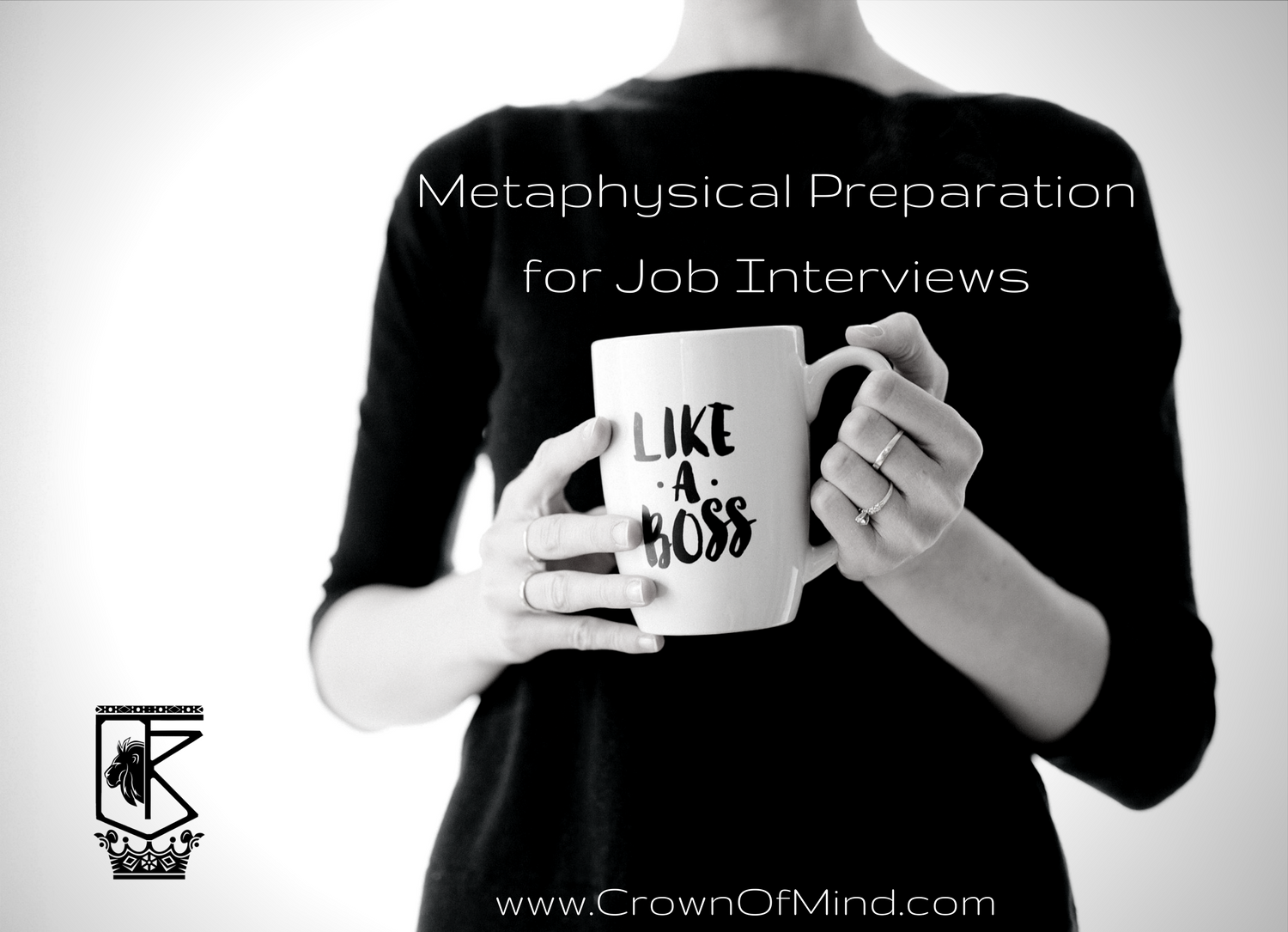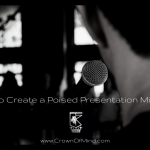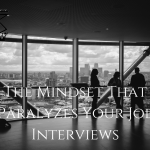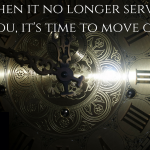Having been on the side of an interviewer and interviewee, and assisted people with their process I’ve come to recognize a few perceptions of this event. One, there’s a lopsided perception that the candidate must plead for the job opportunity. Two, the employer needs to be on their best behavior just as much as the candidate if they want to attract the best talent. And three, one’s self-image is critical to manifesting a successful outcome.
The pleading philosophy becomes more influential as more people are unemployed, providing employers with a larger pool of candidates to interview. If you’ve had the experience of applying online and waiting several weeks for a response, you’ve been on the other end of this pattern. Employers who are actively engaged in the candidate sourcing process may have more sophisticated methods of finding talent; they use websites like LinkedIn, attend social functions where they know specific talent may show up and collect word-of-mouth referrals.
Employers Can Be Slow to Adapt
But most employers do not use sophisticated candidate sourcing methods, opting to rely strictly on their internal HR system for applications. Or, they may use E-mail as a preferred way to have you apply.
Employers who do use these passive methods are the ones you wait 5 weeks to hear back from, only to receive a declined response as if you’ve been sitting in front of the computer for over a month just for them. They simply have so many candidates sending in apps and resumes they may not have the time (or interest) to go through them all. This is why they can ignore your amazing resume, looking beyond your powerhouse credentials even though you’re a great fit for the position. They have the luxury (they really don’t but think they do, if we’re discussing the dollars it could cost to hire an under-performer vs. a talent) to pass you over and continue dipping their hands in the fishbowl.
Understanding how this game is being played can help you become more strategic at this engagement level. It’s also why I advocate for more application strategy. Listen to my audio on this topic below:
https://www.youtube.com/watch?v=6pDf3lfiVfU
And…
https://www.youtube.com/watch?v=286qOuLnsyc
What’s Next?
Now that you have the concept and a skill to practice securing an interview, we have to focus on the actual event. There are some basics that everyone tends to cover and I will as well. This is the physical preparation. Then, we will cover what many do not discuss, and that is the metaphysical preparation. No experience we have in the physical world is devoid of a metaphysical counterpart, “As above, so below.” So we must treat our professional life with both mundane and metaphysical care.
Physical Preparation
1. Research. This is a basic tenet and yet often neglected. I’ve worked with people who truly did no research before going on the interview. Imagine you’ve been scheduled to meet someone who can assist you in some progression on your path and you learned nothing about anything of what’s to take place. Learning the company’s mission, something about its story, the kind of position you’re interviewing for, how you actually fit that position are all mandatory points of research. Why? Because you’re going to be discussing this during the interview. If you’re at all serious about securing the opportunity, it is important to do this research.
2. Analyze the Job Description. The job description is a basic overview of what the position you’re interviewing for entails. It may not be all that the role requires and, it may not be all that the role can evolve into. So you have 2 perspectives to work with: understanding the role’s depth and how you can make the best use of it for your career. I suggest taking a highlighter and going through each line. Ensure you can perform what’s in the bullets, and if you cannot how you can quickly learn to. Next to these points write a small note of what skill you have that proves it. Or a professional experience that proves it. Also look at areas where you can advance the role, to make it your own. You don’t want to just “do the job,” you want to convert it (transmute it) into a form that is most beneficial for your advancement. See the metaphysical in the physical.
3. Search LinkedIn or Website for the Company’s Published Articles. Another way to prepare is to read 1 or 2 pieces, if any, about the company or written by it. LinkedIn and their main websites may have content that gives you insight into something they’ve been working on for some time. It can raise a discussion topic during the interview and, like any moment you have when meeting someone for the first time, when you make the extra effort to learn about something of their interest, you increase rapport.
4. Your Professionals Documents Should Be in Place. This includes your resume, cover letter, a pre-written thank you note and recommendations/references all printed in a small binder. You make two binders, one for you and one for the employer. For assistance with any of these documents, contact me directly at tr@iamtrentrhodes.com to set up an appointment.
Now that you’ve prepared for the basics, you’ll be ready to handle the material aspect of the interview. We can move on to the metaphysical. This involves your subconscious and self-image.
Self-Image & Subconscious for an Interview?
The truth is it really doesn’t matter as much how many jobs you’ve had or company knowledge, because how you see yourself as a person and professional will ultimately influence how you deliver that content. There are plenty of people who have success on interviews without a resume or any of these physical preparations, just walking into an establishment and getting the job done. The key? They knew they could do it. That’s self-image.
A well-developed resume and the lack of confidence in-person to go with it can say you paid someone to write up your document, and you’re just posing. Or…it could look like you’re just not coordinated in your being (can write but not articulate what you just wrote), and that isn’t an attractive quality for an organization.
Your self-image is created in your subconscious. This image is your collection of thoughts, ideas, concepts, emotions, talents you view of yourself as capable of. This is all followed through by your life force. When your self-image is full of cowardice, your life force responds by making your voice weak, posture sluggish, speech lacking confidence and all of that shows up in how you present yourself. Consequently, you attract those very experiences based on the self-image you have.
So we can make the connection: A weak self-image = weak life force = weak self-presentation = weak manifestations
And if we place that in the context of an interview: A weak self-image = weak life force = weak self-presentation with employer = employer assesses you as weak (despite your credentials on paper) = interview results in decline
Metaphysical Preparation
1. Visualization for the Successful Interview. Find a space where you can be with yourself and quiet. This can be done with or without motivational music if that works for you also. Close your eyes and begin this Zazen breathing technique:
1. Inhale through the nose for 4 seconds. Mouth closed, breathe from the lower abdomen.
2. Hold breath for 2 seconds.
3. Exhale 3 rounds for 3 seconds through the nose. It will feel like…
Inhale 1-2-3-4
Pause 1-2
Exhale 1-2-3 then hold breath (briefly)
Exhale 1-2-3 then hold breath
Exhale 1-2-3 then hold breath
Perform this for several cycles until you feel yourself less aware of your body and surroundings. This technology will shift you into the trance state, which is where we change in the subconscious.
When ready, allow your imagination to engage the employer. See yourself. What are you wearing? How are you standing / sitting? What are you saying? How is the employer responding? It doesn’t matter what they look like right now, conjure up the person. See yourself in your most confident, powerful, professional state. Let yourself have that successful conversation and see yourself actually being offered the job. Feel what that’s like in the body to have secured the position. This embodiment practice by using the imagination will activate your life force to begin transforming you into that person.
2. Meditation on the Subject. This differs from visualization in that you allow your mind to run through the thoughts indiscriminately; this is not guided. Also find a space where you will be undisturbed. Close your eyes and perform the Zazen technique. What questions come to mind? What feelings move through you in anticipation of this event? You’re being receptive enough for new insights to spring forth. Perhaps you’ll gain a new understanding of the job, or if you should be doing something else.
4. Voice Record Your Conversation. After performing the Zazen technique, you could turn on your voice recorder and have a fictional (imagination) conversation with the employer. No one else is in your room but you set up the chair in front of you, shake the imaginary employer’s hand then sit down and have the conversation. Play back that recording to hear how you performed. Role play also influences your self-image.
5. Write Yourself in the Form of a Hypersigil Story in the Interview. The hypersigil is a technique you can use to insert yourself into a story. You create all of the characters involved with yours. The externalization taps your subconscious into action, and you literally create the outcome by writing it down as a story. You may save this story and re-read it or destroy it immediately. I suggest to read it as many times as you are guided until you no longer want to. At that time, destroy it to remove attachment.
Employing each of these for your job interviews or big meeting will fill you with a firm internal power, a confirmation of certainty, that you work with your own spirit and the matter around you to achieve your goals. Not only have you done the basic work but also trained yourself to create a new self-image.







[…] how to win competitions before they begin. This involves mental cultivation, the unseen or metaphysical realm. When we consider the mind and how the immaterial manifests the material, we can see how two […]